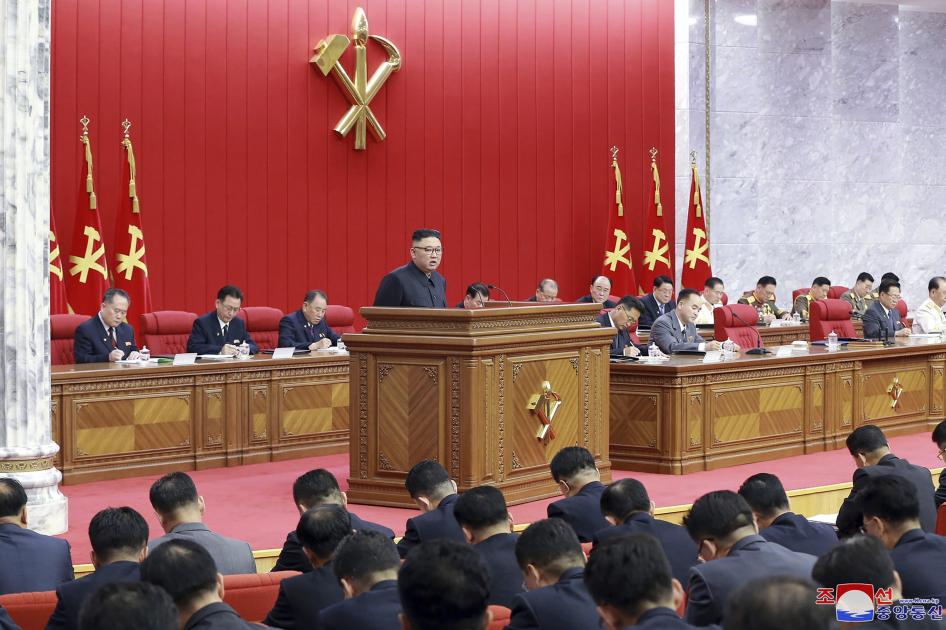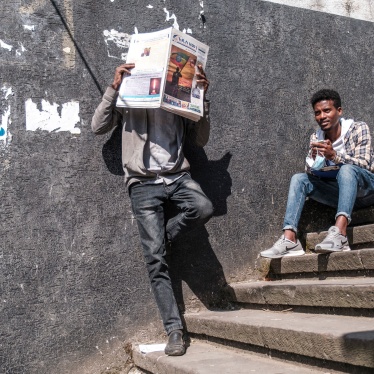(New York) – North Korea’s unnecessary and extreme restrictions to contain the Covid-19 pandemic helped tighten government control while creating a humanitarian crisis, Human Rights Watch said today in its World Report 2022.
“North Korea used Covid-19 restrictions to further oppress the North Korean people while igniting a crisis over access to food, medicine, and other essential goods,” said Lina Yoon, senior Korea researcher at Human Rights Watch. “Governments and international institutions should press the North Korean government to accept monitored international assistance like food, vaccines, and medicine, and to be transparent and non-discriminatory in addressing the pandemic.”
In the 752-page World Report 2022, its 32nd edition, Human Rights Watch reviews human rights practices in nearly 100 countries. Executive Director Kenneth Roth challenges the conventional wisdom that autocracy is ascendent. In country after country, large numbers of people have recently taken to the streets, even at the risk of being arrested or shot, showing that the appeal of democracy remains strong. Meanwhile, autocrats are finding it more difficult to manipulate elections in their favor. Still, he says, democratic leaders must do a better job of meeting national and global challenges and of making sure that democracy delivers on its promised dividends.
In response to the pandemic, in August 2020 North Korea’s leadership created “buffer zones” on the border with China and Russia, and ordered soldiers to “unconditionally shoot” on sight anybody entering without permission. The government banned citizens from nearly all international travel.
The government blocked almost all official and unofficial trade and limited domestic travel almost solely to the movement of essential personnel and goods. As a result, food and other essentials were kept from entering the country, and reduced capacities to move products internally caused shortages of basic necessities. Major droughts in July followed by flooding in August exacerbated the effects of the Covid-19 lockdown.
Kim Jong Un, the North Korean leader, acknowledged North Korea’s dire economic and food situation but called for self-reliance and increased measures against Covid-19. The imposition of Covid-19 measures that far exceeded necessary public health protections prompted almost all foreign diplomats to leave the country, along with all United Nations and aid workers.
Under the totalitarian rule of Kim Jong Un, the third leader of the nearly 75-year Kim dynasty, the government maintained fearful obedience through threats of arbitrary imprisonment, torture, collective punishment, enforced disappearance, execution, and forced labor.
Receiving basic information from outside the country became a criminal offense after Pyongyang adopted a new law in December 2020 that bans people from distributing or watching media originating from South Korea, the United States, or Japan, punishable by long imprisonment and possibly the death penalty.
The government does not tolerate pluralism; bans independent media, civil society organizations, and trade unions; and systematically denies all basic liberties, including free expression, public assembly, association, and religion. The authorities routinely send perceived opponents of the government to secretive political prison camps (kwanliso) in remote regions, where they face torture, starvation rations, and forced labor.
In 2021 the North Korean government continued to prioritize strategic weapons development over poverty reduction, conducting missile tests between March and September.







